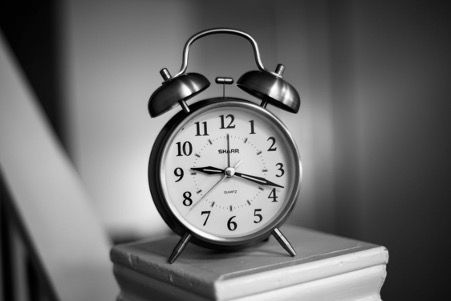
While connected to circadian rhythm, chronotypes are a biological factor of when we are at our most productive and energetic in our sleep and wake cycle. Our chronotype is decided by a number of factors, including genetics, age, potentially even geographical location, and more.
Considering in our society everyone has 24 hours in a day, it’s ironic that we can biologically function very differently depending on the time of day.
Researchers have proposed, however, that our chronotype could be a genetic factor that has evolved in us as a species of hunter-gatherers. Supposedly, by taking turns sleeping somebody would always be on watch, and our internal clocks may have adapted to suit this collaborative sleep cycle.
There are two popular sleep chronotype quizzes that can help you figure out which type you might be. These are the MEQ and MCTQ tests, which each tackle the topic from slightly different angles.
The MEQ stands for Morning-Eveningness Questionnaire, and asks you to discuss a range of different habits, schedules and feelings that you might experience. The MCTQ on the other hand stands for Munich Chronotype Questionnaire, and is much more focused on questions around your sleep schedule.
Usually, people will split this internal clock into two chronotypes: eveningness and morningness, or ‘night owls’ and ‘early birds’. Realistically, however, there is a spectrum of chronotypes, and eveningness and morningness simply mark either end of it.
There are different associations with evening types and morning types, related to anything from personality to health. Being an evening type, for example, might mean that you are more open to experiences, extroverted or even neurotic.
Eveningness is also associated with creative thinking, but the cause and effect of this is unclear. Creative professions often require being active in the evening, so it’s hard to say whether evening chronotypes lead to creative evening productivity, or creative evening work productivity leads to an evening chronotype.
However, evening types are also more prone to unhealthy habits, which can lead to increased stress, cortisol, and heart rates. This is because of the flexible sleep schedules often picked up by those with evening chronotypes, due to sleeping less on weekdays and more on weekends in order to fit a work schedule. Therefore, evening types are more likely to experience shorter and poorer quality sleep when they are eventually able to settle for the night.
Morning types, on the other hand, find it much easier to fit their sleep around a typical work schedule, but might find socializing in the evening more difficult.
In opposition to evening people, morning people might be more academic thinkers than creative ones, which could be linked to school starting early in the day. They also tend to be more conscientious, agreeable, and self-disciplined.
Morning types will typically have more restful sleep simply because their day-to-day schedules are better suited to their natural sleep cycle.
For most people, your chronotype will naturally change slightly throughout your life. For example, children are usually a morning type, which shifts back during adolescence, explaining the common stereotype of ‘lazy teenagers’. It then moves earlier again in your 20s, where most people are at suited for a 9-5 working day. It can also change following retirement.
While age does typically affect our chronotypes, researchers believe it’s very difficult to change your chronotype on purpose. Instead, it’s something we should be aware of, and try to consider when we plan our days.
At Get Laid Beds, we offer a wide range of wooden bed frames to help you get the best sleep, whenever that might be.
Whatever your chronotype, get in touch with one of our team today to start designing your perfect bespoke bed to match your sleep preferences and home.


WE VALUE YOUR PRIVACY
We use cookies to enhance your browsing experience, serve personalised ads or content, and analyse the traffic with 3rd party services. By clicking ‘Accept’, you consent to our use of cookies, visit our Privacy Policy and our Cookie Policy for more info.
Note: International shipping prices are charged per bed rather than per order. This is due to the bulky nature and weight of these products.